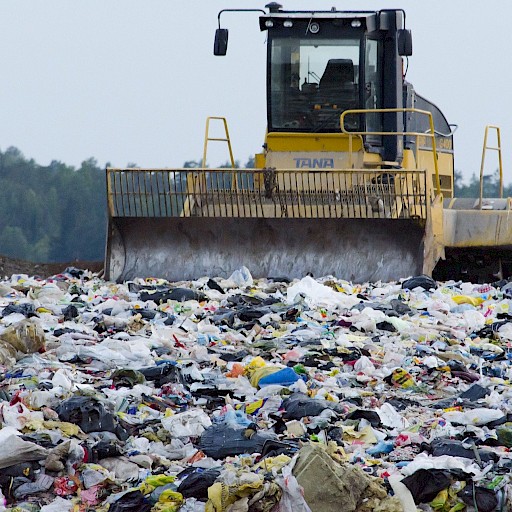Action 39 and Action 40: Best practice on waste management
Action Title:
39 - Highlight those waste management practices that impact significantly on marine litter. Engage with the industry and other authorities, at the appropriate level, in order for them to be able to develop best environmental practice, including identification of circumstances on where litter “escapes” into the marine environment and investigating how to close loops focusing on non-toxic material cycles.
40 - Share best practice on waste management, e.g. on landfill bans of high caloric wastes (esp. for plastics).
Lead Party(ies): Germany and the Netherlands are lead with assistance from Plastics Europe and International Waste Working Group (IWWG)
What is the issue?
Significant amounts of plastics leak from land-based sources into the North-East Atlantic as a result of current inefficiencies or insufficiencies in waste management practices and planning, despite there being a long-established history of waste management in the region.
The focus for these actions has been on land-based inputs of macro plastic litter in all five OSPAR marine regions. Point sources as well as diffuse sources on the coasts and inland (input via rivers or winds) were also part of the considerations in the implementation of this action.
What has OSPAR Done?
The scope for a background document was discussed by an Action Task Group comprising experts from Germany, the Netherlands, the International Waste Working Group and Plastics Europe. A background document was developed by the task lead on the basis of results returned from a “Waste Management Questionnaire”, that had been distributed to all OSPAR Contracting Parties mid-2018. This was supplemented with multiple expert interviews and an extensive literature review. The OSPAR Background Document was published in 2021.
Final outputs and published reports
ACTION COMPLETED
----------------------------

